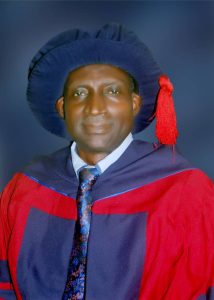Organizational Structure (Organogram)
Dean of Faculty
HOD
Academic Staff
Chief Laboratory Technologist
Administrative Staff
Technologists / Lab Assistants
Students
The Department has Academic Staff, Technical Staff and Administrative Staff with an expanding population of over eight hundred (800) students. The staffs are committed to providing quality services to students and the academic community at all times.
The Head of Department (HOD) superintends over all academic activities and general administration of the Department. Decision making process in the Department occurs at two levels; The Departmental Board and The Departmental Board of Examiners.
The Departmental Board, made up of all Senior Staff in the Department, meets monthly to deliberate on issues of general interest to the Department. The Departmental Board of Examiners, made up of all academic staff from the rank of Assistant Lecturer and above, meets at least once in a semester or when the need arises to consider students results or other academic matters affecting students.

